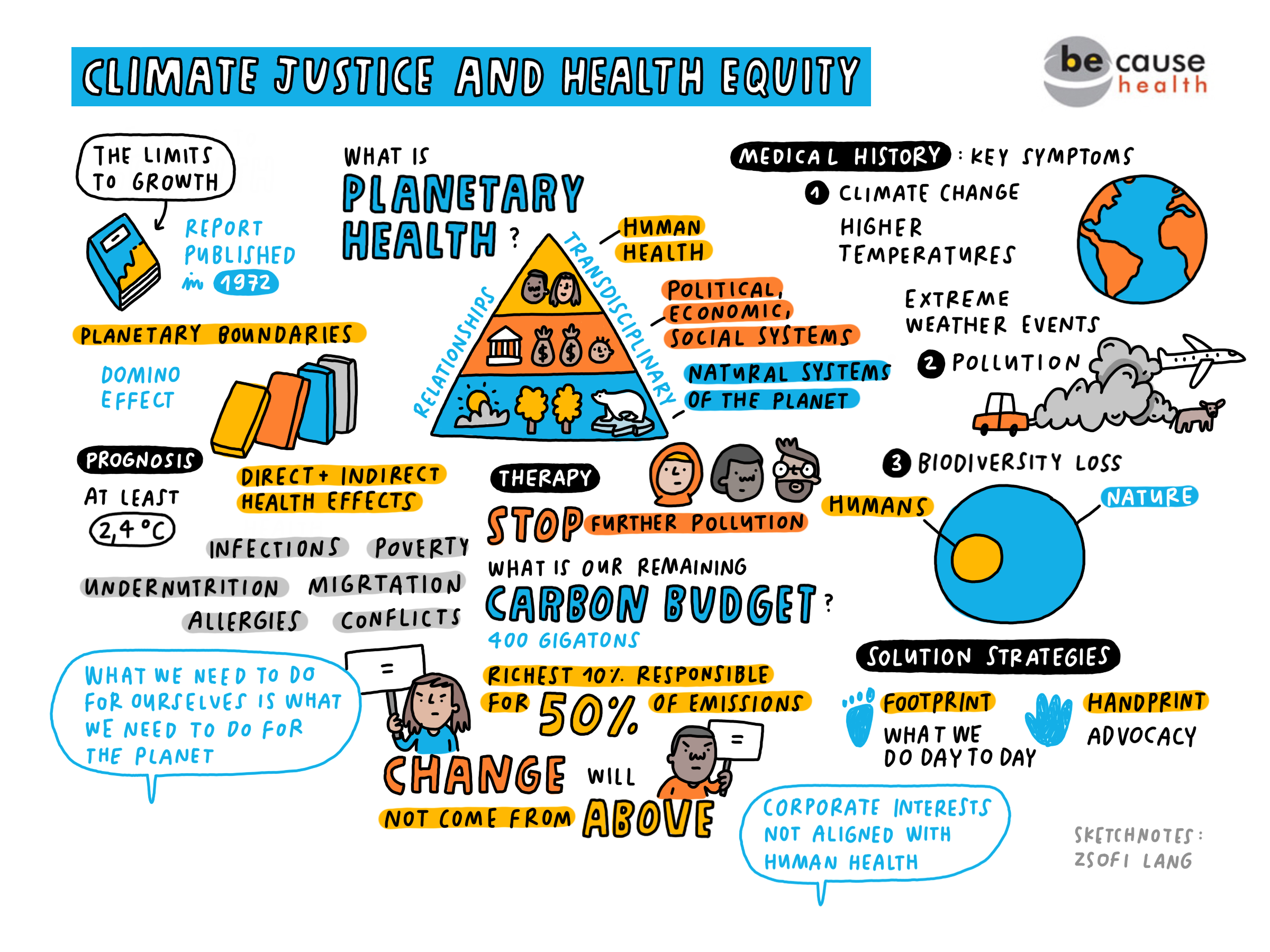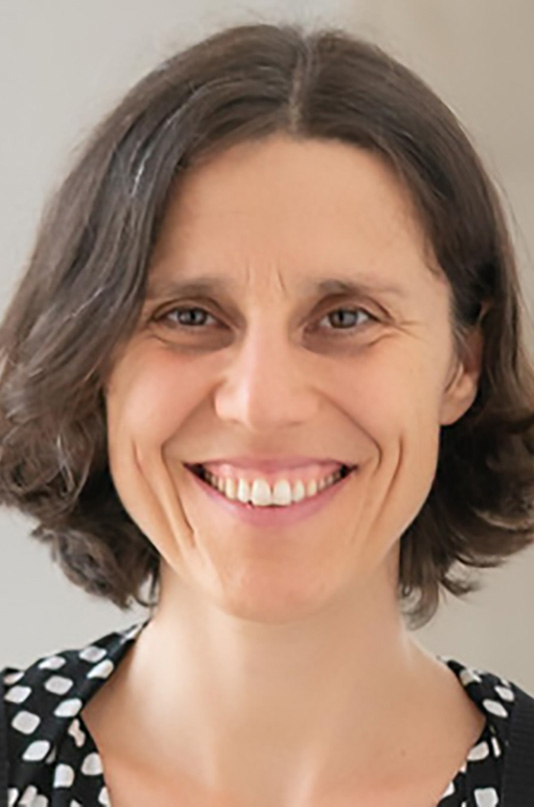
Belgian Platform for International Health ENG | FR
Keynote
Sabine Gabrysch (Potsdam Institute for Climate Impact Research & Charité – Universitätsmedizin Berlin, Germany)

Sabine Gabrysch provides a clear overview of a planetary health perspective on the climate emergency. She starts with the definition of planetary health: the health of humans and planet earth. It builds on One Health, eco-health, conservation medicine and on public and global health. Planetary health goes beyond the social and economic determinants of health, and also considers the natural systems of the planet. The concept refers to the Gaia theory by James Lovelock (the earth as ‘one big superorganism’). The Lancet and Harvard University played a big role in taking the concept further and building an alliance for planetary health. It is a broad concept of health and needs a transdisciplinary approach with a focus on the Anthropocene and its impact. The key challenges for the planetary health approach are imagination, knowledge and implementation.
Sabine Gabrysch uses the metaphor of the earth as a patient visiting the doctor.
First of all, the doctor looks at the earth’s medical history and examines the patient. The earth has a fever, she is suffering from a CO2 concentration spike, pollution and biodiversity loss.
Secondly, the doctor makes a diagnosis and prognosis: what is the situation with our 9 planetary boundaries? The prognosis is not linear: there are ecological tipping points and depending on actual future global warming (minus or plus 2°C) different climate scenarios are possible. The patient's condition has direct and indirect health effects (ecological and social) on humans, and the impact of the vulnerabilities are unequal.

"The climate crisis cannot be discussed without talking about justice."
The doctor communicates the diagnosis and overviews the patient's options for therapy. First of all, there is an urgent need for emergency aid (stop ecologically harmful subsidies, deforestation, etc.). In the long run, there is a double challenge: achieving good health at low energy costs (overcoming poverty). We need to reduce CO2 emissions, distribute the remaining CO2 budget in a just manner and minimise withdrawal symptoms. The fairest and most impact reduction lies with the richest and has to be done now. We will face more risks as we reduce later. Small steps will not suffice, a great “transformation and transition” is needed.
What is the value we assign to nature and the complexity of life? Sabine Gabrysch refers to Schweitzer, the Dalai Lama, the Pope, Chief Seattle and looks for concrete solution strategies for a sustainable lifestyle: reduce our ecological footprint and improve our ecological handprint, change politics! Plenty of solutions are available already and they are often synergetic, which means a win-win; good for the planet and good for our own health (e.g. pedestrian and bicycle friendly transport, renewable energy, regenerative agriculture and healthy diets, etc.).
To conclude, Sabine Gabrysch invites all of us to take part in the discussion: “Planetary Health: What we need to talk about?” and form alliances with a positive vision for health and social wellbeing.